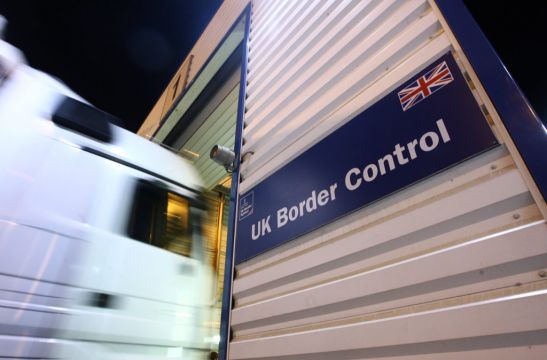The implementation of post-Brexit border checks on food products coming from the EU has been delayed for a fifth time, the UK government has confirmed.
The first stage of the UK’s new border model, originally set for October, is now delayed to January 2024, with physical checks and other requirements coming in throughout the next year.
The extension was confirmed as the UK Cabinet Office published its new “border target operating model”, which delineates the UK’s upcoming approach to safety and security controls on all imports, with a particular emphasis on sanitary and phytosanitary (SPS) measures for goods like live animals, plants, and animal products.
The Cabinet Office said: “Having listened to the views of industry, the government has agreed to a delay of three months for the introduction of remaining sanitary and phytosanitary controls, as well as full customs controls for non-qualifying Northern Ireland goods, which will now be introduced from January 2024.
“To give stakeholders additional time to prepare for the new checks, further controls have a revised timetable. These include checks on medium-risk animal products, plants, plant products and high-risk food (and feed) of non-animal origin from the EU, implemented in April 2024, and safety and security declarations for EU imports, implemented in October 2024.”
Goods from Britain have faced EU controls since it left the single market at the start of 2021, but the UK has repeatedly put off checks in the other direction.
According to the revised timetable, starting from January 31st, 2024, imports of medium-risk animal products, plants, plant products, and high-risk non-animal origin food (and feed) from the EU will require health certification.
By April 30th, 2024, these items will undergo documentary, identity, and physical checks, while imports of sanitary and phytosanitary goods from other parts of the world will adopt a new risk-based approach.
From October 31st, 2024, safety and security declarations for EU imports will become mandatory, along with a more streamlined dataset for imports.
The Cabinet Office said that in developing the new regime, the UK government has been mindful of the potential impact on inflation, with an estimated impact on headline inflation expected to stand at less than 0.2 per cent across three years.
Last week, the Financial Times reported the government chose to enact the extension as British chancellor Jeremy Hunt wanted to delay the costs associated with the post-Brexit checks, which would add to food bills.
Downing Street said the government has been “mindful of the impact of inflation” but signalled that there would be no more delays.
“Throughout this we have been mindful of the impact of inflation, but I am not aware of any plans to move beyond the dates we have set out. We are introducing a sufficient time to enable businesses and those affected to plan,” British prime minister Rishi Sunak’s official spokesperson said.
“That is what we have set out to them. It is worth being mindful that it is because of conversations with these businesses that we have brought in further time to plan, so we have been listening to businesses throughout.”
Cabinet Office minister Baroness Neville-Rolfe said on the new border model: “Our border target operating model will ensure more efficient trading for businesses, protect against biosecurity threats and further crack down on illegal imports such as firearms and drugs.
“By making maximum use of data and new technologies, our innovative yet risk-based approach is key to delivering a world-class border system.
“Once fully implemented, these important post-Brexit measures will, I believe, bring considerable benefits to the UK economy and to UK trade, and the government stands ready to support businesses through this transition.”
William Bain, head of trade policy at the British Chambers of Commerce, said: “Businesses will be pleased with this clarity as they prepare for the challenging shift to a digital trade system. The focus must now be on delivering the Single Trade Window to the timescales set out. The new approach to digitalising borders for goods movements could bring real benefits to the SMEs we represent, to trade, and to the economy.
“The critical thing is preparedness. Businesses are making investment and supply chain decisions for the long term and need to be confident that the physical and digital infrastructure around the GB border is going to be in place on time.”
Liberal Democrat Treasury and business spokesperson Sarah Olney said: “This humiliating U-turn is just the latest example of Conservative chaos.
“Ministers have been forced to delay their plans amid warnings they’d make food even more expensive. Meanwhile, small businesses spent millions preparing for the changes and are now left wondering what’s next.
“A hammer blow to shops and shoppers may have been avoided at the last minute, but the government should do more than just kick the can down the road.
“It needs to fix our broken relationship with Europe and guarantee that people won’t see even higher food prices due to paperwork and red tape at the border.”







